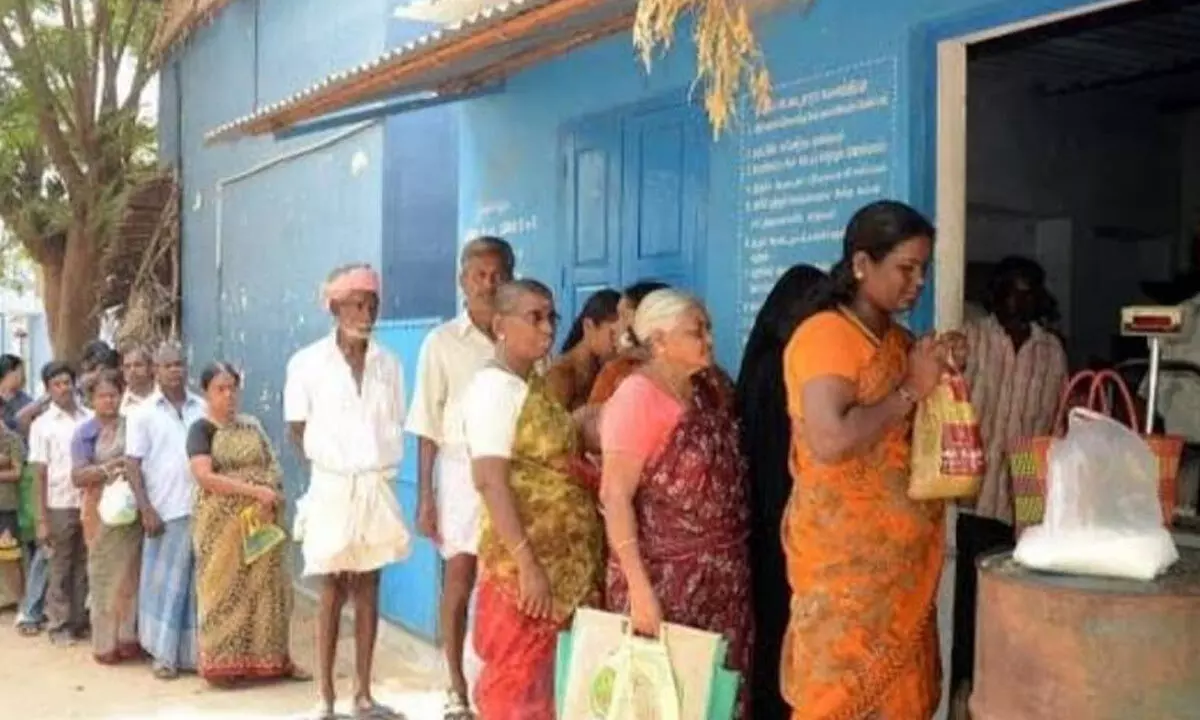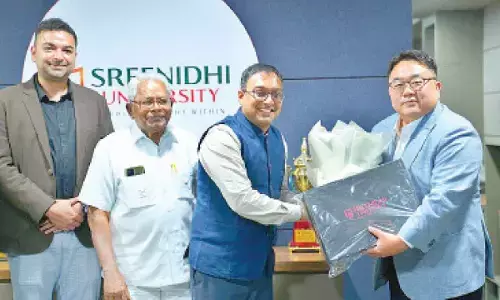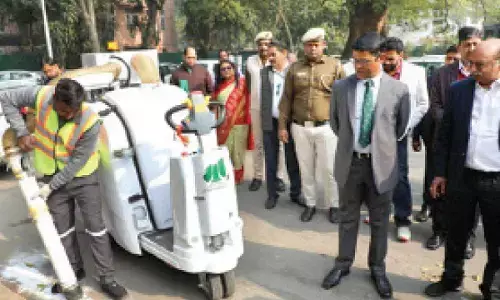Illegal diversion of PDS Rice rampant in Gadwal district

The illegal diversion of rice intended for the Public Distribution System (PDS) is rampant in the Gadwal district.
Gadwal: The illegal diversion of rice intended for the Public Distribution System (PDS) is rampant in the Gadwal district. Dealers and millers exploit the system by buying rice from the poor at low rates and mixing it with finer rice to sell at significantly higher prices. This fraudulent activity results in substantial profits for those involved, while the intended beneficiaries suffer from a lack of food security.
Key points include:
PDS rice is being collected from poor recipients by middlemen at low prices (Rs. 10 per kg) and sold at much higher prices (Rs. 50 per kg and above) after being mixed with finer rice.
Special mills are set up to process this rice, which is then sold in the market at high rates.
A well-organized gang operates this illegal business, with activities concentrated in both rural and urban areas.
The government rice meant for the poor is often diverted before reaching its intended recipients, leading to widespread corruption and profiteering by mill owners.
Authorities seem to be complicit or ineffective in curbing these illegal activities.
The lack of enforcement and oversight allows this illegal trade to thrive, causing significant harm to the intended beneficiaries of the PDS scheme and potentially leading to health issues for consumers due to the poor quality of the adulterated rice. There is an urgent need for government intervention to address and eliminate this corruption.
Controlling corruption in the distribution of Public Distribution System (PDS) rice requires a multi-faceted approach involving policy reforms, technology integration, increased accountability, and community participation. Here are some strategies that can hep to Implement Technology Solution. Biometric Authentication : Use Aadhaar-based biometric authentication to ensure that rice reaches the intended beneficiaries.
Digital Ration Cards: Replace physical ration cards with digital ones to reduce tampering and duplication.
e-POS Machines : Install electronic Point of Sale (e-POS) machines at ration shops to record transactions digitally and prevent diversion.
Improve Transparency :
Public Distribution Portals : Develop and maintain online portals where citizens can check their entitlements, transaction histories, and lodge complaints.
Social Audits: Conduct regular social audits involving community members to review PDS operations and identify discrepancies.
Strengthen Monitoring and Accountability :
Regular Inspections : Conduct frequent and unannounced inspections of ration shops and mills to deter malpractices.
Whistleblower Protection : Encourage and protect whistleblowers who report corruption within the PDS system.
Third-party Audits : Engage independent agencies to audit the distribution process and identify areas of concern.
Legal and Administrative Reforms:
Strict Penalties : Impose severe penalties on those found guilty of diverting or adulterating PDS rice.
Transparent Procurement : Ensure transparency in the procurement and distribution process of rice to prevent leakage at different stages.
Decentralization : Decentralize the distribution process, empowering local bodies to manage and monitor the system more effectively.
Community Participation :
Vigilance Committees : Establish local vigilance committees comprising community members to oversee the functioning of ration shops.
Awareness Campaigns : Educate beneficiaries about their rights and entitlements to reduce exploitation by middlemen.
Feedback Mechanisms : Set up robust feedback mechanisms to gather inputs from beneficiaries and address their grievances promptly.
Enhance Supply Chain Management :
Real-time Tracking : Implement GPS tracking for trucks transporting PDS rice to monitor their movement and prevent diversion.
Warehouse Management : Improve the management of warehouses to ensure the quality and quantity of stored rice are maintained.
By combining these strategies, it is possible to significantly reduce corruption in the PDS system and ensure that rice reaches those who need it most.
















